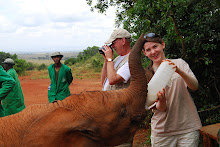Wednesday, April 6, 2011
Vernacular: Farsi Language
"By then, Khala Jamila's initially subtle hints had become overt, as in 'Kho dega! So! When am I going to sing alahoo for my little nawasa?' " I was interested by the insertions of the Farsi language into this novel while the rest of the book is written in English. I think that these words show how important country, family, and tradition is to the Afghan people. The words that are in the vernacular are usually very important to the novel as a whole, but also to the Afghan people. Nawasa refers to the grandchildren that Jamila is asking about and alahoo is songs that she had been forbidden to sing by her husband except to her grandchildren. Also, the title Khala is always added before he name, so familial titles, not just Aunt, Uncle, Grandma, or Grandpa is English were sufficient in these cases, the author had to show how the Afgahns think and what they respect and believe. Earlier in the novel, the author also uses naang and namoos, his honor, because that is what an Afghan person is defined by and honor does not cut it. It had to be in the vernacular because it is so ingrained in these people that it is Afghan itself almost. The vernacular makes the reader think about what those words are and what they mean because they are changed from English to Farsi for a reason.
Subscribe to:
Post Comments (Atom)

No comments:
Post a Comment